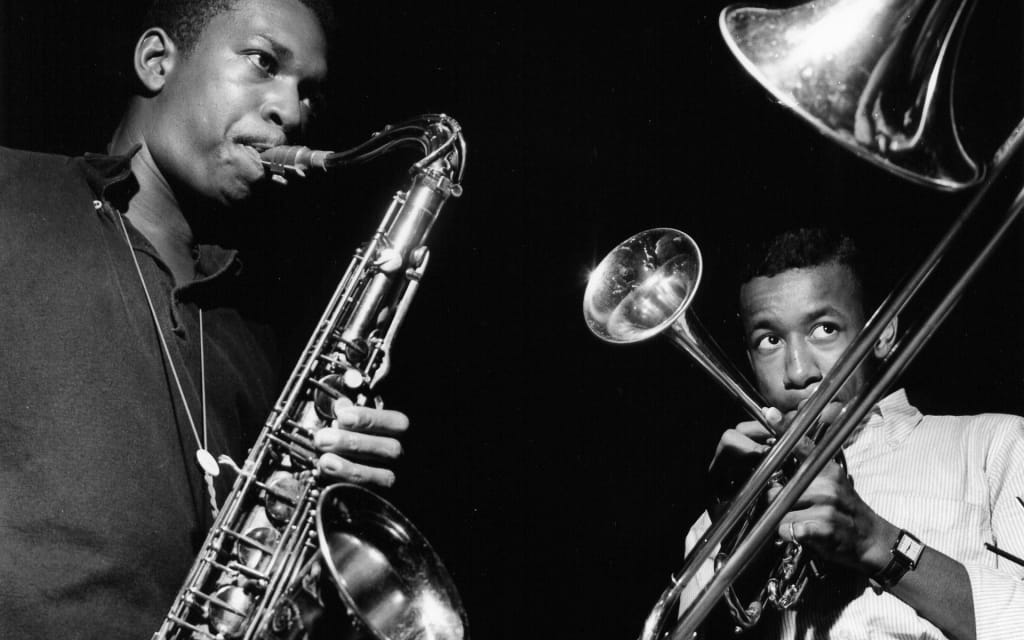
A friend recently asked me to suggest some jazz recordings that might propel his newly developed interest, so I made him an Introduction to Jazz list with these essential artists. There are obvious omissions. No Lester Young? No Sonny Rollins? I know, I blew it - there are just too many greats and not enough time. But I did one thing right: this list contains no Kenny G.
Read for yourself and see who you'd add to the list...
Louis Armstrong
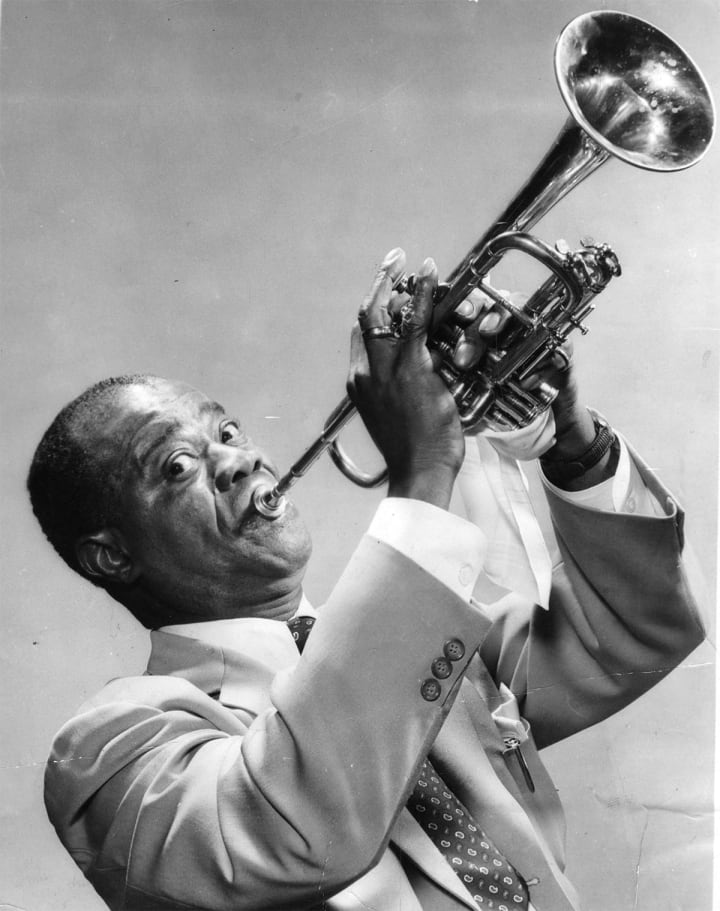
Think of the impact Jimi Hendrix had on other guitar players; Armstrong had a similar effect on almost every jazz musician since the 1920s. We're not talking "Hello, Dolly" here. We're talking "Snake Rag," by Joe “King” Oliver's Creole Jazz Band, featuring Armstrong on cornet. Louis Armstrong’s legacy goes well beyond his technical musical skills – he is remembered for his iconic gravelly voice and infectious presence onstage and was one of the first jazz musicians to perform extended trumpet solos. He conjures images of kicking and swinging with such skill and jubilation, that even today his sound still sounds fresh.
Fats Waller
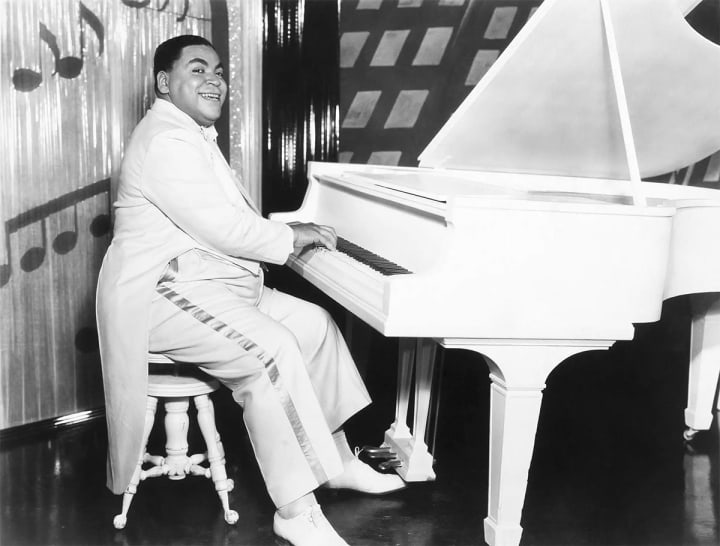
Sure, "Ain't Misbehavin’” is great, but you know what that sounds like; after all, it was one of Thomas Wright “Fats” Waller’s most popular compositions and entered the Grammy Hall of Fame in 1984 (as did “Honeysuckle Rose” in 1999). Instead, check out "Blue Black Bottom," recorded in 1927, and sit in awe of the touch and uncut funk. While Waller only lived to 39 – he died of pneumonia in 1943 – he left an indelible mark on modern jazz piano that rightfully earned him the epithet of King of Stride.
Coleman Hawkins
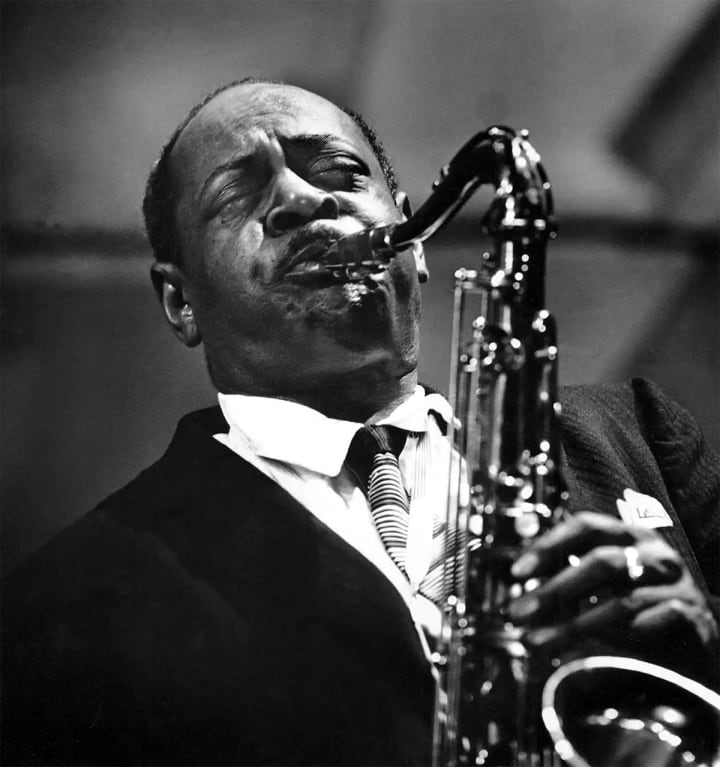
"Body and Soul," a 1939 recording, was the jazz hit of its time. Less than three minutes of exuberance, discipline and daring from a tenor-sax icon who spanned the generations. Hawkins, or Hawk, was a pioneer in jazz music, credited with establishing the saxophone as a jazz horn; before he began playing at age nine, this instrument was not yet associated with this genre of music. Coleman Hawkins, and his sterling reputation, has most strongly been associated with big band era and swing music, but he also participated in the development and growth of bebop throughout the 1940s.
Duke Ellington
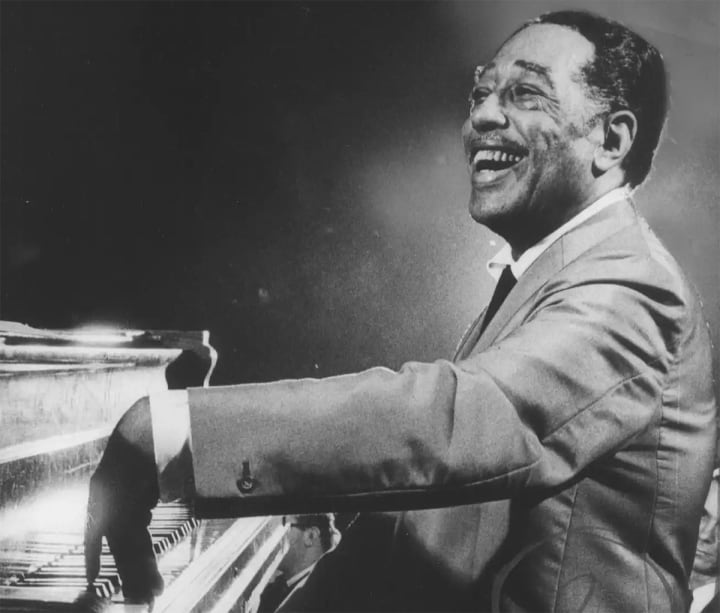
Photo by Raymond J. Lustig Jr.
Duke Ellington was one of the century's great composers (and pianists) in range and depth, from small group hits to big band workouts to orchestral suites. "Sophisticated Lady"? "It Don't Mean a Thing (If It Ain't Got That Swing)"? "Take the A Train," written by the Duke’s brilliant musical stunt double Billy Strayhorn? Take ‘em all. Ellington’s legacy seems to only grow with time – he died in 1974, but was posthumously awarded a Pulitzer Prize for music in 1999.
Charlie Parker
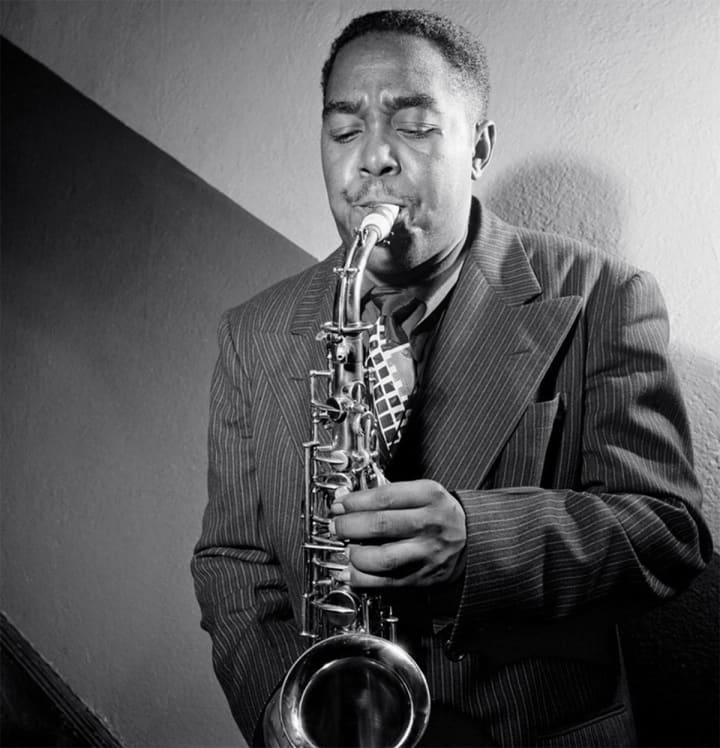
“Ko-Ko.” The Bird is a word, bebop his imprint. This 1945 track featured his band, the Reboppers, with bop cofounder Dizzy Gillespie on trumpet. Together, they do more than walk a tightrope without a net; they play leapfrog on it with the audacity that makes bop still sound like an insurgency. Charlie Parker was the original hipster, launching an entire musical movement.
Miles Davis
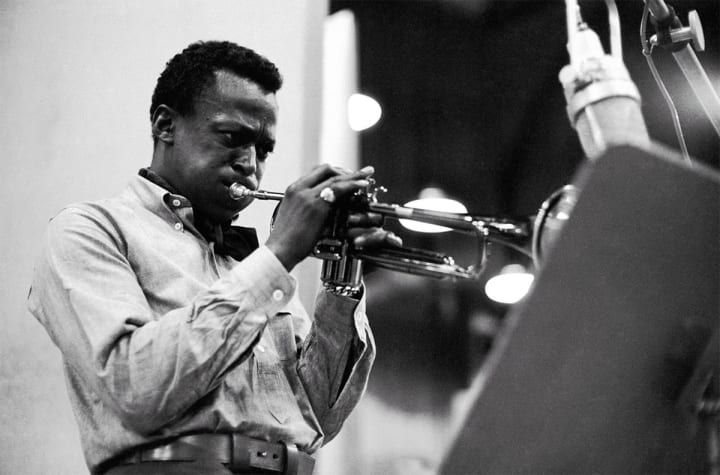
Photo by Don Hunstein
Miles Davis performed in six different decades, and towered over four of them. The impossible pick: "On Green Dolphin Street," lyrical, propulsive, pretty, but never innocuous. This trumpet master of the universe recorded it in 1958 at an early peak with a future Hall of Fame band that included Bill Evans (piano), John Coltrane (sax), Paul Chambers (bass), and Jimmy Cobb (drums). Davis’s influence on jazz music cannot be overstated: he had a hand in every major stylistic trend that occurred during the decades that he played, and it has been argued that the genre stopped changing when he was no longer there to change it.
John Coltrane
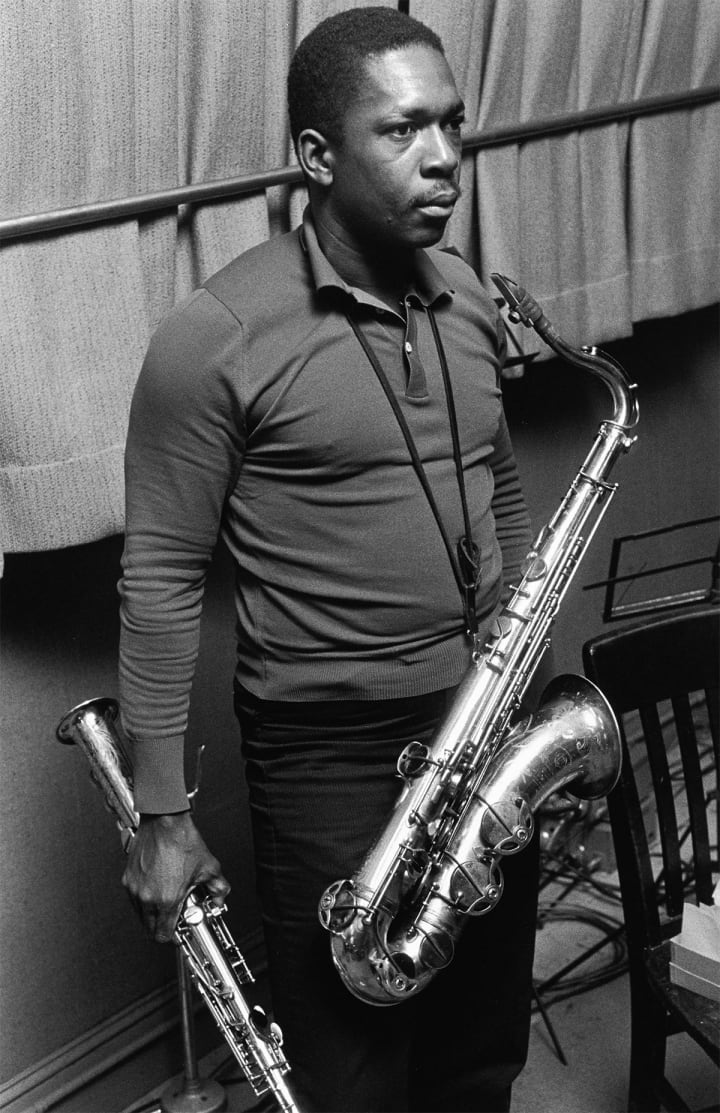
"Acknowledgment." The pinnacle of Coltrane's spiritually directed free jazz, augmented by the drums, bass and piano of his classic quartet (Elvin Jones, Jimmy Garrison, McCoy Tyner). Coltrane was a prolific player, known to have led at least fifty recording sessions during his career and appeared as a sideman during countless more.
Rahsaan Roland Kirk
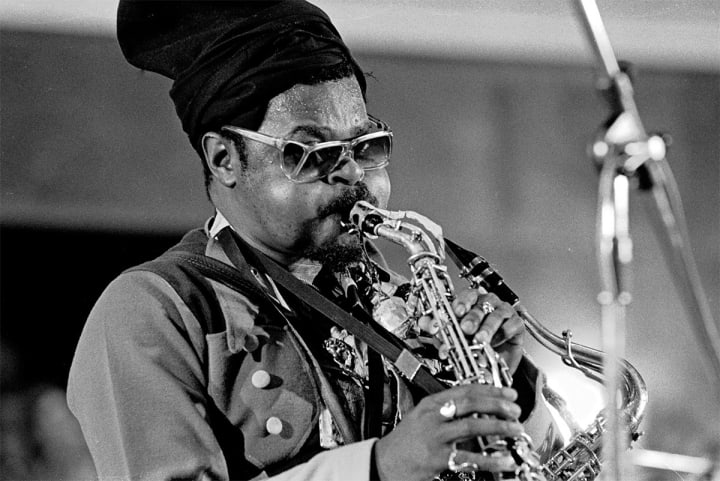
Photo by Heinrich Klaffs
“Volunteered Slavery." Featuring the overlord of flute, tenor sax, nose flute, manzello, stritch, gong and vocals, the title track to this 1969 album combines the seer's characteristic blend of humor, rage, and virtuosity. And the "Hey Jude" fade will blow your mind.
Dexter Gordon
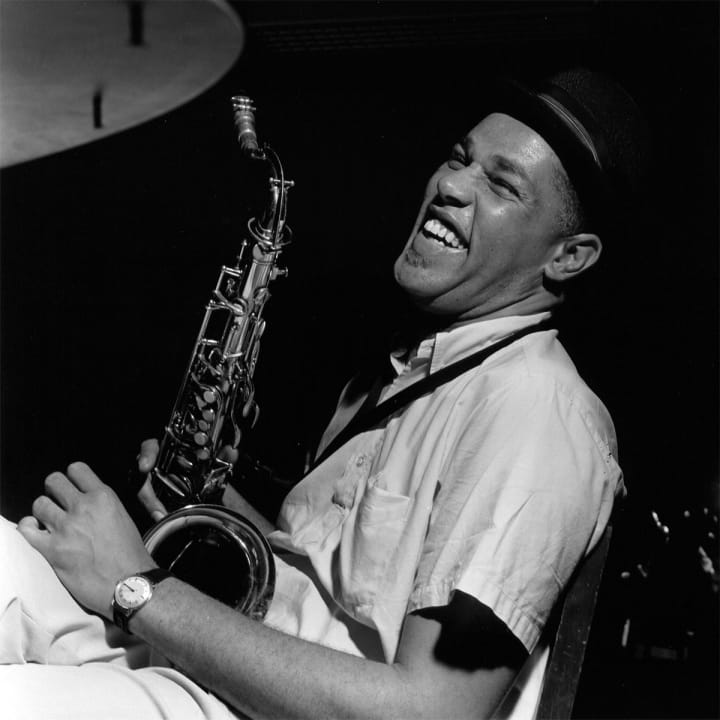
"Love for Sale." Dexterous 1962 version of the Cole Porter tune veers from lushly romantic to solidly swinging, with an unmatchably pure and beautiful tone. This tenor jazz saxophonist was known for his emotional and humorous performances; he emphasized communication with his audience while onstage, often reciting lyrics to a song before playing it so that each ballad could have its intended effect.
Thelonious Monk
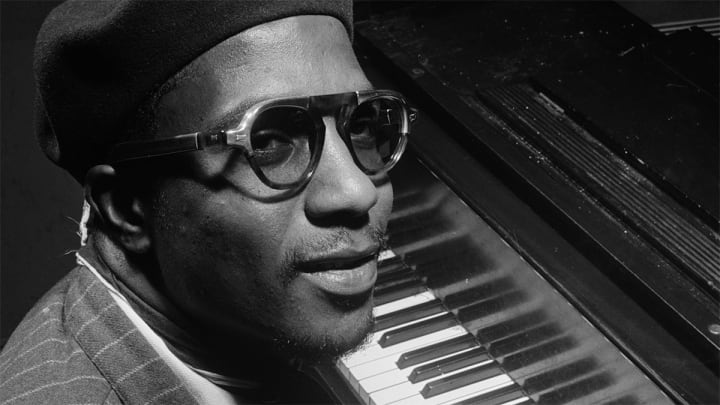
"Well, You Needn't." A spellbinding riff anchors one of the one-of-a-kind pianist arranger’s most memorable tunes. That is quite a statement, considering that Monk is one of the most-recorded jazz composers of all time, second only to Duke Ellington. This pianist and composer was known for his improvisation and his signature style - rarely going onstage without his suit, hat, and sunglasses.
Charles Mingus
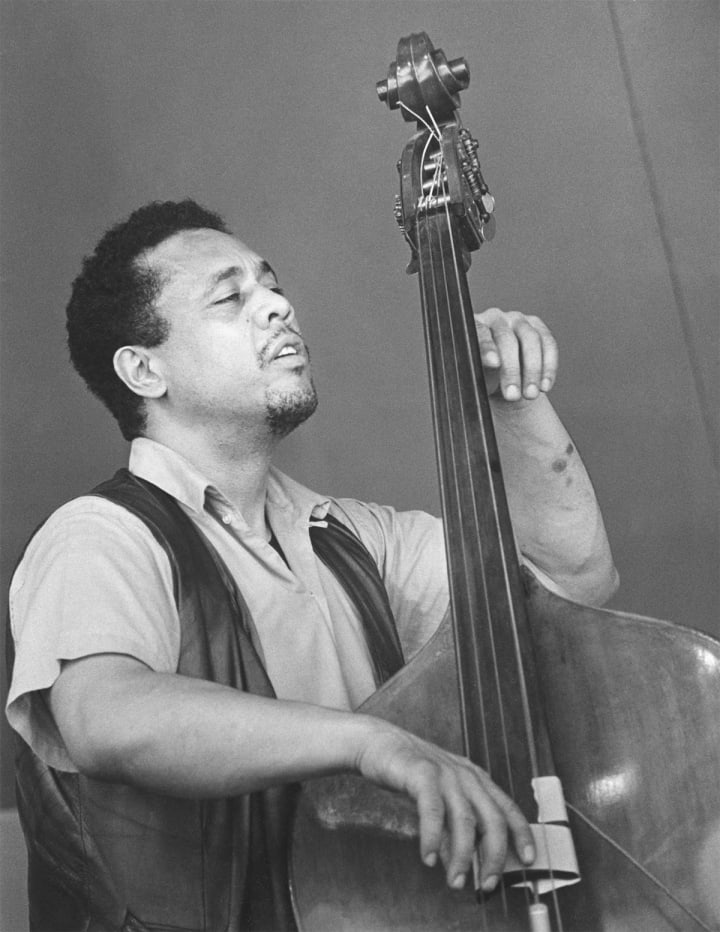
"Better Git It In Your Soul." Pushing the envelope was the routine for this bassist-composer-arranger who, like Ellington, mastered so many musical elements that this is just a bite from his banquet table. In fact, he was a tremendously talented pianist and could very well have made a career playing piano instead of the bass. During his career he played with many of the other greats on this list like Charlie Parker, and when he died he left behind a huge collection of musical scores and compositions which have become greatly important not just to Mingus fans but to the history of music as a whole.
If you're interested in exploring the rich music of jazz, you can't go wrong with these artists and tracks. Unlike many other genres, the more you listen, the more you're rewarded...
About the Creator
Max Jones
New Orleans raised, a retired self taught sax player who spends his time keeping jazz alive through his writing, reviews, and occasional show.






Comments
There are no comments for this story
Be the first to respond and start the conversation.